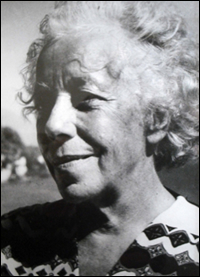Karen Horney
Karen Horney MD, a pioneer in the field of psychoanalysis, received her medical, psychiatric, and psychoanalytic training in Berlin in the early 1900’s.
Challenging the view that people are instinct-driven, her belief in an individual’s capacity to grow and change is evident when she wrote, “Psychoanalysis can free a human being who has been tied hands and feet. It cannot give him new arms or legs. Psychoanalysis, however, has shown us that much that we have regarded as constitutional merely represents a blockage of growth, a blockage which can be lifted.”Her optimistic and humanistic philosophy that distinguished her from her psychoanalytic peers formed the basis for the founding of the Association of the Advancement of Psychoanalysis, the American Institute for Psychoanalysis (AIP) and the Karen Horney Clinic. She questioned the role of gender in personality development and stressed the importance of society and culture as determining and gauging factors for normal and pathological development.
Her intelligent understanding of women is especially enlightening today in view of women’s changing roles in society, their perceptions of themselves, and their emotional and mental well-being. She remains the only female founder of a psychoanalytic school of thought. Her revolutionary ideas form a major part of the evolution of psychoanalysis over the past half-century. Some of Dr. Karen Horney’s most notable works include:
Neurosis and Human Growth, Norton, New York, 1950.
Are You Considering Psychoanalysis? Norton, 1946.
Our Inner Conflicts, Norton, 1945.
Self-analysis, Norton, 1942.
New Ways in Psychoanalysis, Norton, 1939.
The Neurotic Personality of our Time, Norton, 1937.
Feminine Psychology (reprints), Norton, 1922–37 1967.
The Collected Works of Karen Horney (2 vols.), Norton, 1950.
The Adolescent Diaries of Karen Horney, Basic Books, New York, 1980.
